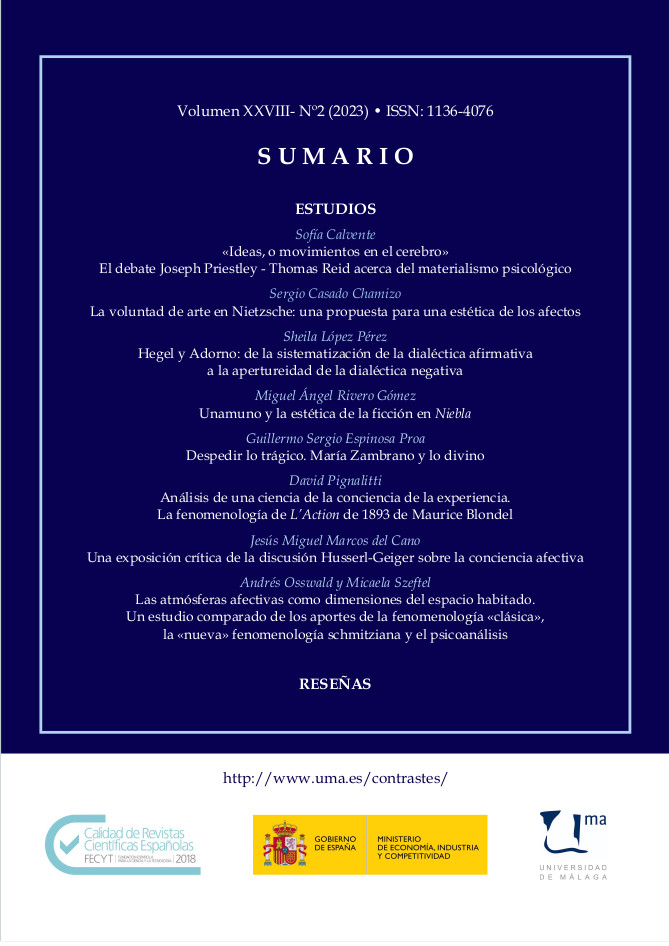Say goodbye to the tragedy. Maria Zambrano and the divine
DOI:
https://doi.org/10.24310/Contrastescontrastes.v28i2.15091Keywords:
God, myth, tragedy, Nietzsche, christianityAbstract
This article addresses the problem of the relationship between the tragic and the divine taking as a fundamental reference the book by Maria Zambrano originally written in 1955 and revised twenty years later. It is one of the most lucid defences of the Christian religion, always on guard against the mythical way of conceiving the world. The underlying assumption is that the gods of mythology are human products, while, conversely, the Christian God creates men. At no time did Zambrano feel the slightest willingness to discuss such an argument. A criticism of that position is proposed here.
Downloads
Metrics
Publication Facts
Reviewer profiles N/A
Author statements
Indexed in
-
—
- Academic society
- N/A
- Publisher
- Universidad de Málaga
References
SAVATER, F. (1989), La piedad apasionada, Salamanca: Sígueme.
ZAMBRANO, M. (1971a), El sueño creador, Madrid: Aguilar.
ZAMBRANO, M. (1971b), Apuntes sobre el lenguaje sagrado y las artes, Madrid: Aguilar.
ZAMBRANO, M. (1999), Filosofía y poesía, México: FCE.
ZAMBRANO, M. (2020), El hombre y lo divino, Madrid: Alianza.
Downloads
Published
How to Cite
Issue
Section
License
This journal provides immediate free access to its content under the principle of making research freely available to the public. All content published in Contrastes. Revista Internacional de Filosofía, are subject to the Creative Commons Attribution-NonCommercial-ShareAlike 4.0 license whose full text can be found at <http://creativecommons.org/licenses/by-nc-sa/4.0>
It is the responsibility of the authors to obtain the necessary permissions of the images that are subject to copyright.
Authors whose contributions are accepted for publication in this journal will retain the non-exclusive right to use their contributions for academic, research and educational purposes, including self-archiving or repository in open access repositories of any kind.
The electronic edition of this magazine is edited by the Editorial Service of the University of Malaga (Uma Editorial), being necessary to cite the origin in any partial or total reproduction.










5.png)
